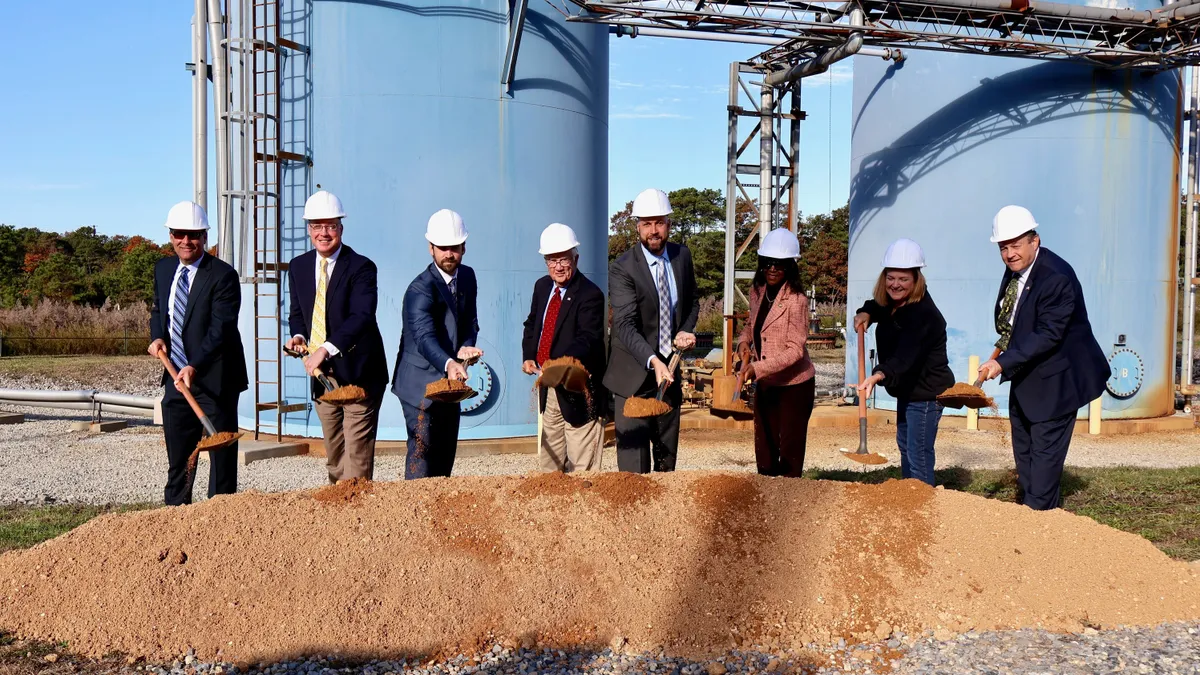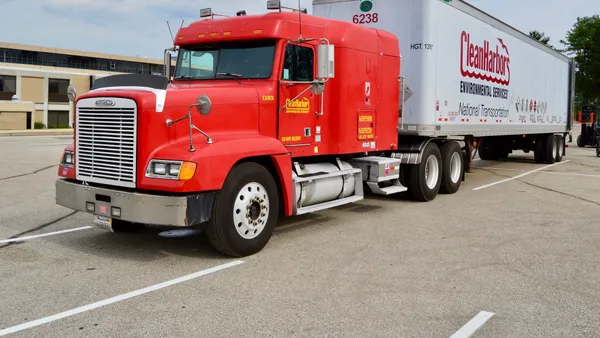The renewable natural gas (RNG) market has matured significantly in recent years and progressive regulatory changes, including federal tax incentives, could spur even greater development. Landfill gas, the leading feedstock for RNG production, can play a critical role in driving the growth of RNG for developers by capturing the biogas from decaying organic waste. According to the EPA, about 20% of operating landfill gas energy projects are making RNG, which shows ample room for growth, particularly as the technology to capture methane constantly improves.
But developers can’t do it alone. Given the uncertainty around an expanded investment tax credit (ITC), they need partners who are reliable off-takers with a long-term appetite for RNG. Public agencies and utilities are well suited to act as these partners. These organizations have a direct stake in providing reliable energy resources to their communities. Expanding RNG into heavier, hard-to-decarbonize industries, they leverage a drop-in solution that reduces emissions.
Bringing these stakeholders together in a public-private partnership can reduce the environmental impact of municipal solid waste (MSW) while economically meeting local energy needs. These partnerships are already driving success for communities and stakeholders, such as the collaboration between South Jersey Industries (SJI), OPAL Fuels and the Atlantic County Utilities Authority (ACUA) to produce RNG from a solid waste landfill in Egg Harbor Township, NJ.
“ACUA is a leader in efficiency and innovation, which makes us an optimal partner in public-private partnerships,” says Matt DeNafo, President of ACUA. “As a government agency, however, ACUA can be restricted in how quickly we implement projects, or certain projects may face limited funding. Partners like SJI and OPAL Fuels provide the wide range of expertise and resources needed to get these projects off the ground.”
Why turn landfill emissions into RNG?
As all waste managers recognize, decaying organic waste in landfills results in greenhouse gas (GHG) emissions, particularly methane. Those emissions can be captured, and when treated to remove moisture and contaminants, the biogas can be used to generate renewable electricity or further upgraded to pipeline-quality RNG. This process benefits the environment by harnessing methane from waste to produce a valuable energy source.
“Projects that convert landfill gas to RNG shift the perspective of utilities from merely controlling emissions to benefitting from them,” DeNafo says. “RNG projects help landfills prioritize efficiency to capture even more methane and provide a revenue stream to offset increasing costs.”
An important feature of RNG is that it can be distributed by local distribution companies (LDCs) through existing infrastructure. This means landfills with landfill gas collection systems can optimize their gas wells and host an RNG facility with little to no effect on their current operations. Because of this efficiency and availability, the landfill gas-to-RNG market grew from just 84 operational facilities in 2022 to an impressive 102 facilities in 2023.
New partnerships point the way forward
In Egg Harbor Township, NJ, public and private organizations are anticipating the completion of the Atlantic RNG project, an RNG facility benefiting from this efficient use of resources. SJI, OPAL Fuels and Atlantic County Utilities Authority (ACUA) bring a wealth of expertise across various infrastructure projects, which will result in optimal implementation. For example, ACUA successfully saved ratepayers millions of dollars by generating on-site electricity from captured landfill gas to power their 360-acre Environmental Park, which includes a recycling center, vegetative compost facility, and landfill. “It greatly reduced our energy costs and was a valuable way to repurpose landfill gas,” DeNafo says.
The new facility will capture significant amounts of landfill gas for conversion to RNG; according to DeNafo, it aims to reduce flare emissions by up to 95%. South Jersey Gas (SJG), an SJI subsidiary, entered into an interconnection agreement to accept the RNG produced by Atlantic RNG. This initiative supports the circular economy model of production and consumption which reuses and recycles waste into the energy we use daily. “The earnings from this project will provide more revenue to offset rising costs and contribute to the long-term success of our operations,” DeNafo adds.
And it’s not only Egg Harbor Township that’s benefiting from this type of partnership— SJI and OPAL Fuels are developing another RNG facility at Burlington County Resource Recovery Complex in Florence Township, NJ. This facility is designed to produce approximately 0.92 million MMBtus of RNG each year. By converting landfill gas to RNG, demonstrates SJI’s commitment to generating long-term value through innovative partnerships, operations and sustainable investments.
Circularity starts in our communities
Providing affordable, reliable energy is a complex task that involves numerous stakeholders to do so efficiently and cost-effectively. Public-private partnerships, such as those SJI contributes to in New Jersey, can bring innovative projects to fruition to address even thorny challenges.
Learn more about SJI’s collaborative solutions for repurposing waste in your community.










